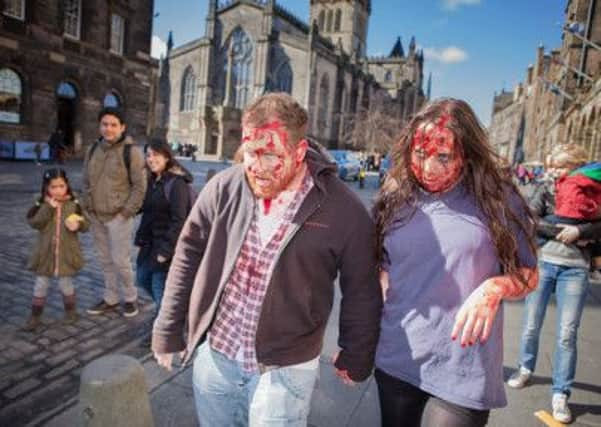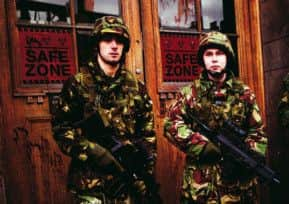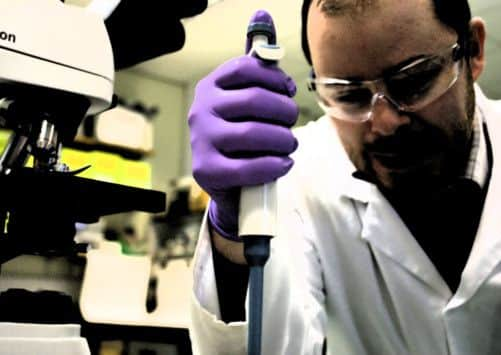Zombies take over city in Deadinburgh


That’s the scenario that will face audiences at Summerhall this week, when LAStheatre’s new experiential production, Deadinburgh, locks down for a three-day run, beginning tomorrow.
Immersive and interactive, Deadinburgh’s audiences will become the last un-infected citizens of Edinburgh, a city, under martial law and cut off from the rest of the UK.
Advertisement
Hide AdWith the help of scientists they will have only hours to decide how to save the Capital and perhaps the world.


Imagine being in an episode of Channel 5’s The Walking Dead and you get the idea.
“There are definite parallels with The Walking Dead,” says director Barra Collins. “The success of that series is that it’s not really about the zombies, but about people in an extraordinary situation. In a way that is what Deadinburgh is too. It’s an extraordinary situation in which the audience are given access to the people inhabiting that world.”
Consequently, everyone has their own part to play in the piece, although Collins is keen to stress that interaction can be as much or as little as the individual likes.
“When the audience arrive, the actors will talk directly to them. They will be split into six companies, each accompanied by a pair of soldiers as they go through the building meeting different scientists along the way.


“Each group will have a completely unique experience. At the end, they will all gather together to decide what to do. There are three choices and the ending of the play depends on what they decide.”
Advertisement
Hide AdWith actors playing the infected hordes and besieged soldiers, the audience’s options are to destroy the city, cull the infected or search for a cure.
Joining the cast to help them solve the problem will be real life scientists Grace Coia and Sarah Keer-Keer.
Advertisement
Hide AdCoia, a hypno-psychotherapist dealing with eating disorders, will address the undiscriminating rush to annihilate people with zombie-like symptoms.


Keer-Keer from Wellcome Trust Centre for Cell Biology, meanwhile, will attempt to help the audience understand what is happening at the molecular level, explaining cells, viruses and antibodies and how they spread and the impact they can have.
“The great thing about having real scientists is that they can hopefully answer any questions on the audience’s mind. If it was an actor, the actor wouldn’t necessarily be able to go off script.
“It’s certainly going to be a rewarding show for inquisitive minds but equally interesting for those who would rather take a more passive approach.”
That said, a passive approach won’t stop you coming face to face with the dreaded zombies, or Palps as they are known in Deadinburgh.
“We’re not calling them zombies, they are PALPs - person affected with the Lazarus pathogen - and there may well be a boundary breach by the PALPs causing a stand-off between the military and the infected citizens desperate to get into the safe zone.”
Advertisement
Hide AdIt all sounds like exciting, if gory fun, but there is a serious side to the production, which uses the zombie epidemic to ask what it really means to be human?
“There will be people who say we have to destroy the infection or it could spread and then kill millions more. The other side of that is, these are real people, so when does a person stop being a person and become just infected tissue? The ethics of epidemics are addressed in the show. Do we really understand what is happening to these people? Could they be treated? What are their human rights? Are we in a position where we can shoot them? They might just have a brain degenerative disorder that is akin to Alzheimer’s, so does that mean if we shoot these people it might have a knock on effect on the way we treat other people with other illnesses?
Advertisement
Hide Ad“It’s about realising the consequences of our decisions and what they mean to the bigger world picture.”
Deadinburgh, Summer-hall, formerly the Dick Vet School, tomorrow-Sunday, 7.30pm, £15, 0845-874 3001